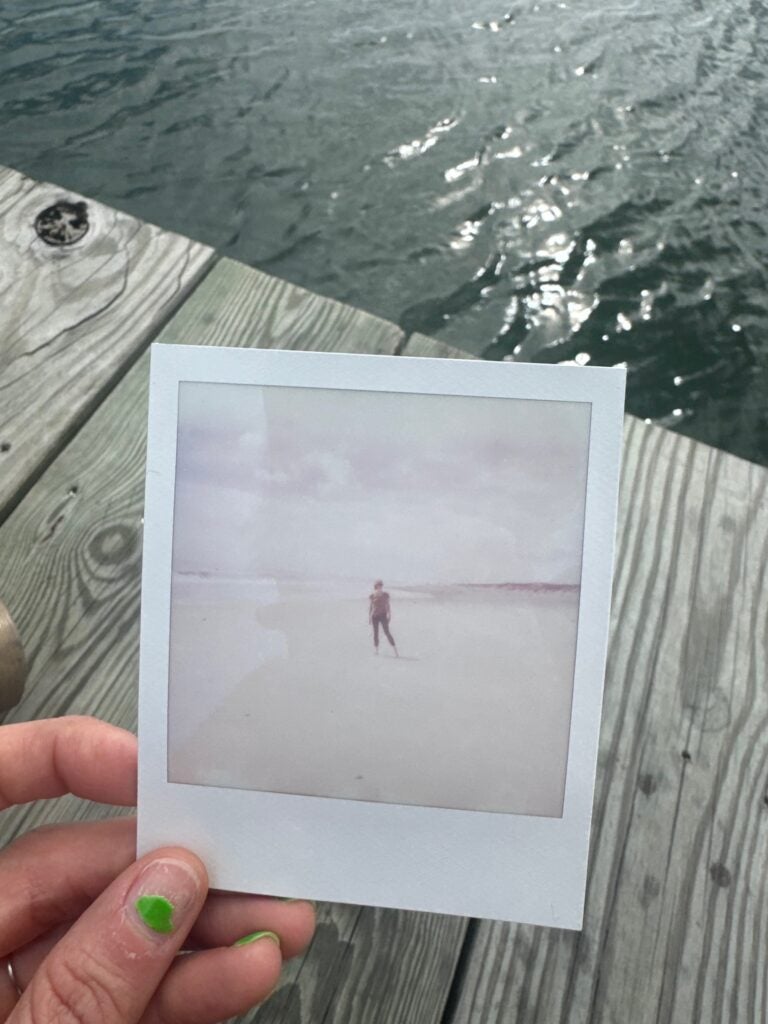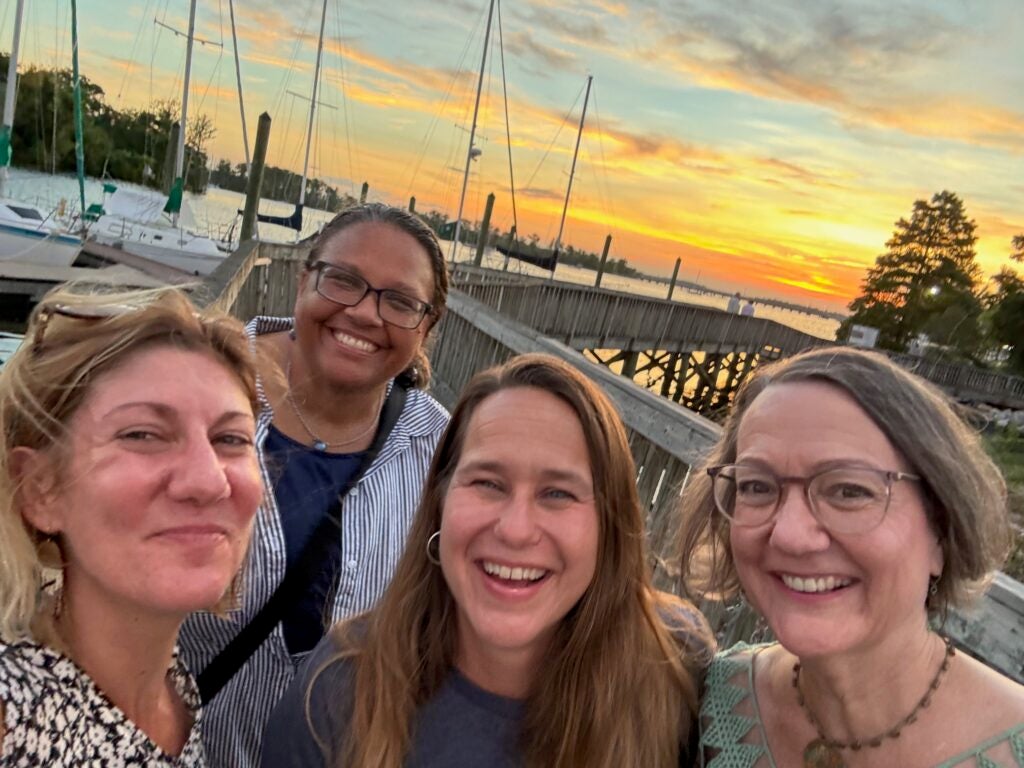by Rebecca Bernard, Fiction Editor

Although I was born and raised in Silver Spring, Maryland, growing up, my family made a yearly summer pilgrimage to spend a week on Ocracoke Island at the farthest reach of the Outer Banks. I’m not sure how my parents learned of this idyllic beach town, but I’m forever grateful to have discovered Ocracoke and its beauty at a young age.
Perhaps because of this first magical foray into the wilds of North Carolina, but for years I’d held a dream of living in the state that offered up so many sea-bitten, dune-stoked, hushpuppy-ied memories of my youth. And so I was beyond grateful to accept a position in the English department at East Carolina University (sharing an NPR station with the Outer Banks, no less!) and move to Greenville in the summer of 2024. Now, having completed my first year at ECU, and my first semester as the new fiction editor for NCLR, I’m excited to talk some North Carolina fiction.
Before moving to North Carolina, my writing life had already been touched directly by the North Carolina literary tradition. My MFA Thesis Director was none other than esteemed NC literary icon Tony Earley, whose stories, novels, and excellent editorial eye shaped my understanding of the precision that prose might reach for. I remember the first time I read “The Prophet from Jupiter” marveling at the movement within the narration, the glide from humor to pain, the fullness of a place and its myriad people without a single extraneous detail. A decade later, I was lucky to be placed in a workshop at the Sewanee Writers Conference with not one but two North Carolina writers of record, Stephanie Powell Watts and Holly Goddard Jones. Stephanie’s collection We Are Taking Only What We Need and her novel No One Is Coming to Save Us, an expansion from one of the stories, moved me with their breadth and depth of character, and taught me so much about voice and place. Holly Goddard Jones, whose collection Girl Trouble I’d first encountered during the MFA, wowed me with its sharp interiority and language. Holly’s second collection Antipodes features one of my most favorite recent stories, “Visitation,” which features an imaginary childhood friend gone wrong (of sorts), a tall, furry creature named Mr. Gone Gone. Most recently I just finished Leah Hampton’s debut collection F*ckface, (two stories of which appeared in NCLR back in the day!) and I was pretty blown away by her range in voice, and the sharpness of her sentences, each one liable to cut. Next on my reading list is Halle Hill’s collection Good Women (2023) from Hub City Press of which I hear excellent things.
What’s most gratifying about serving as Fiction Editor for NCLR is that now I will have the opportunity to share new fiction, and to begin to help building and sharing on this rich North Carolina literary tradition. To start, I’m excited to share some of the fiction forthcoming in our summer 2025 issue and in our current spring 2025 online issue. In our spring issue, Jim Grimsley offers us a liminal moment in the ocean with his story “There’s Another Moment after this One.” In this lyrical exploration of time and art and memory, the narrator stands suspended on a sand bar, and the moment yawns and stretches in the precarity of moments we won’t get back: “There is a sense of connection from me to you, a pull of force, and I know I must stand just this close to you, neither farther nor nearer, and I must keep quiet while you wait just ahead of me, the back of your head, the wind, the ceaseless water sound, splash, spray, retreat, a gull hanging over your hair, wings curving over the wind to keep itself still.”

I was also lucky to be a reader and to help curate the list of finalists for the 2024 Doris Betts Prize. In our print issue you’ll find the winning story “IDP’s” by Evan Fackler, an empathic portrait of the climate devastation that’s coming for all of us, and the humanity (Oh, do we need humanity right now…) that will likely be our best collective option for survival. Also in the issue is the story “Suzanne Is In Pottery Class” by Leslie Pietrzyk, a finalist that hooked me on the first read, awed by its confident prose and deeply drawn protagonist. “Suzanne” is the story of a young artist, a girl emotionally tied to her sister, who slowly finds her own way in part through her inclinations toward art. And finally, there is a featured second story by Jim Grimsley, “We Never Asked For This” which offers, among other elements, a speaking dog who would really rather not have this particular gift. In reading the story, I was immediately felled by its establishment of world, its humor, and its deft emotional blows. This one’s a knockout.
Although I’m only coming up on my first full year living in North Carolina, I’m already looking forward to the roots I’ll sow and the rich literary world that awaits exploration. And in this journey, I’m especially grateful to serve as Fiction Editor for NCLR and to have the chance to bring excellent fiction to our readers and to the larger literary world.